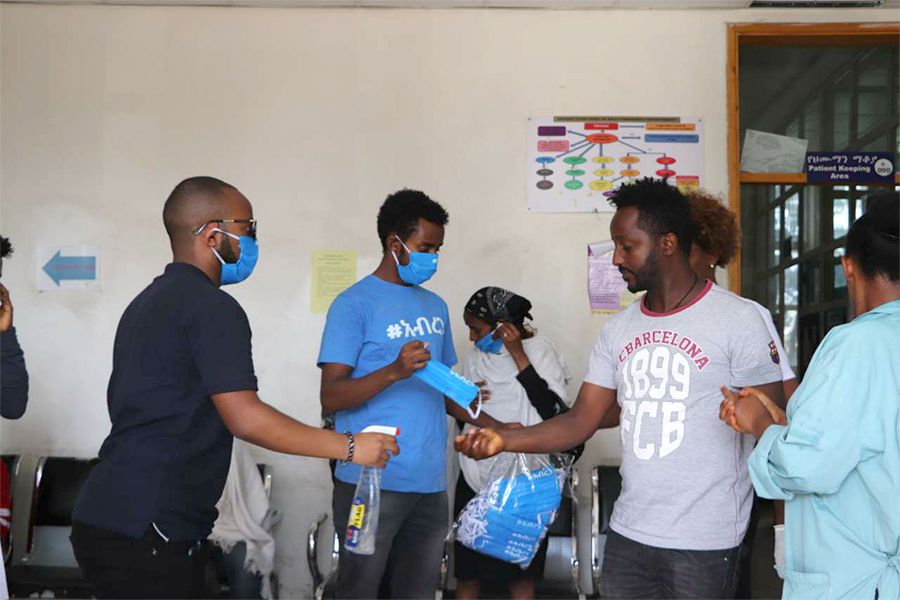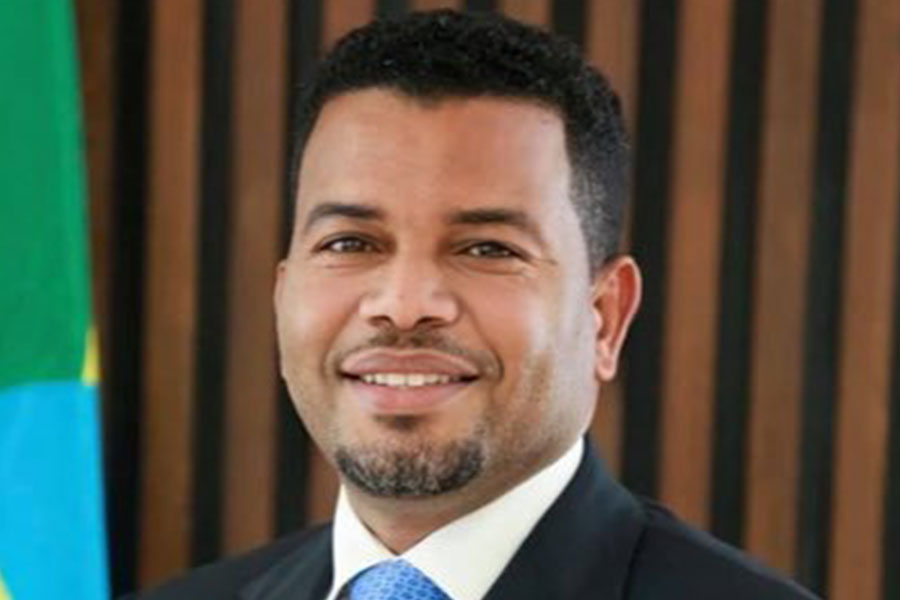
Apr 17 , 2021
By Christian Tesfaye
The United States’ new 70-something president, Joe Biden, announced a full withdrawal of American troops from Afghanistan. He was standing in the same spot in the White House as his predecessor, former President George W. Bush, did when he fatefully declared the Middle Eastern country's invasion two decades ago.
Subsequent presidents promised an end to it, including Barack Obama and Donald Trump. Indeed, there has been a decided reduction in troop presence over the past decade. In the meantime, the Taliban, a group founded in Pakistan in the mid-1990s and with ties to Al-Qaeda, has been making gains against the Afghan Armed Forces.
While giving up the intractable “forever war” and withdrawing 2,500 of its troops, the US vaguely promises to help rebuilding and humanitarian efforts as well as a “suite of capabilities” to ensure stability in the Middle East. The North Atlantic Treaty Organisation (NATO) will match this with a withdrawal of its own 7,000 troops.
The debate rages. One side contests that this will replicate the security vacuum created in 2011 in the wake of the Obama administration's troop withdrawals from Iraq that led to the rise of the Islamic State of Iraq & the Levant (ISIL). Others contend that the threat of terrorism has been reduced and negotiation with the Taliban is the best possible alternative, no matter the policies it would likely follow.
Yet others hold that Biden's announcement is a sign of the Taliban’s staying power, an underdog wearing out the most militarily-capable world power. Indeed, this seems to be the case. It is intractable, but there is no doubt that US strategic analysts have warned the administration that the troop withdrawal only ends the war for the US, not for Afghanistan's people.
Let us tally the costs of war for the people, where everyone under 20 would not have known peace but would probably appreciate it more than most of us.
Between the Taliban, US Forces and the Afghan Armed Forces, up to 170,000 civilians have perished. In 2018 alone, 10,000 civilians are believed to have died, according to the Human Rights Watch. A third of these are children. Millions were displaced while Afghanistan continued to be at the forefront of a global opium market that kills 100,000 people annually and funds global terrorism.
It is obvious that other wellbeing outcomes would suffer as well, including health and education. In 2018, nearly half of all school-age children were not attending school.
Then, inevitably, war crimes were committed by both sides in the conflict, including US forces. It was a rain of brutality that left a society broken to its core, terrorised beyond comprehension and blighted for at least a generation.
The cruelty of war does not need reminding. There are too many examples worldwide, erupting time and time again even as everyone else is left aghast asking why anyone would start such a thing. More often than not, war is not the general public's choice, at least not once the details come out.
Usually, it is power politics by elites. In the Afghan case, the US tried to over-compensate for its shock of the terrible September 11 attacks by turning its might against forces deemed intolerable. For the Taliban, it is a fight to regain territory and economic and political power; perhaps even glory, however conceptualised. For Pakistan, which has been accused of supporting the Taliban, it is geopolitical security against India.
What did it all mean for the people of Afghanistan as the elephants fought? Absolute misery.
A reflective society will take heed for madness not to take over and to make every effort possible to build societal cohesion.
PUBLISHED ON
Apr 17,2021 [ VOL
22 , NO
1094]


Commentaries | May 31,2020

Covid-19 | Mar 29,2020

Radar | Jun 27,2020

Commentaries | Jun 11,2022

Commentaries | Apr 11,2020

Radar | Sep 19,2020

Radar | Feb 22,2020

Radar | Mar 23,2019

Fortune News | May 28,2022

Fortune News | Aug 22,2020

Photo Gallery | 174412 Views | May 06,2019

Photo Gallery | 164637 Views | Apr 26,2019

Photo Gallery | 154807 Views | Oct 06,2021

My Opinion | 136669 Views | Aug 14,2021
Editorial | Oct 11,2025

Dec 22 , 2024 . By TIZITA SHEWAFERAW
Charged with transforming colossal state-owned enterprises into modern and competitiv...

Aug 18 , 2024 . By AKSAH ITALO
Although predictable Yonas Zerihun's job in the ride-hailing service is not immune to...

Jul 28 , 2024 . By TIZITA SHEWAFERAW
Unhabitual, perhaps too many, Samuel Gebreyohannes, 38, used to occasionally enjoy a couple of beers at breakfast. However, he recently swit...

Jul 13 , 2024 . By AKSAH ITALO
Investors who rely on tractors, trucks, and field vehicles for commuting, transporting commodities, and f...

Oct 11 , 2025
Ladislas Farago, a roving Associated Press (AP) correspondent, arrived in Ethiopia in...

Oct 4 , 2025
Eyob Tekalegn (PhD) had been in the Governor's chair for only weeks when, on Septembe...

Sep 27 , 2025
Four years into an experiment with “shock therapy” in education, the national moo...

Sep 20 , 2025
Getachew Reda's return to the national stage was always going to stir attention. Once...

Oct 12 , 2025
Tomato prices in Addis Abeba have surged to unprecedented levels, with retail stands charging between 85 Br and 140 Br a kilo, nearly triple...

Oct 12 , 2025 . By BEZAWIT HULUAGER
A sweeping change in the vehicle licensing system has tilted the scales in favour of electric vehicle (EV...

A simmering dispute between the legal profession and the federal government is nearing a breaking point,...

Oct 12 , 2025 . By NAHOM AYELE
A violent storm that ripped through the flower belt of Bishoftu (Debreziet), 45Km east of the capital, in...